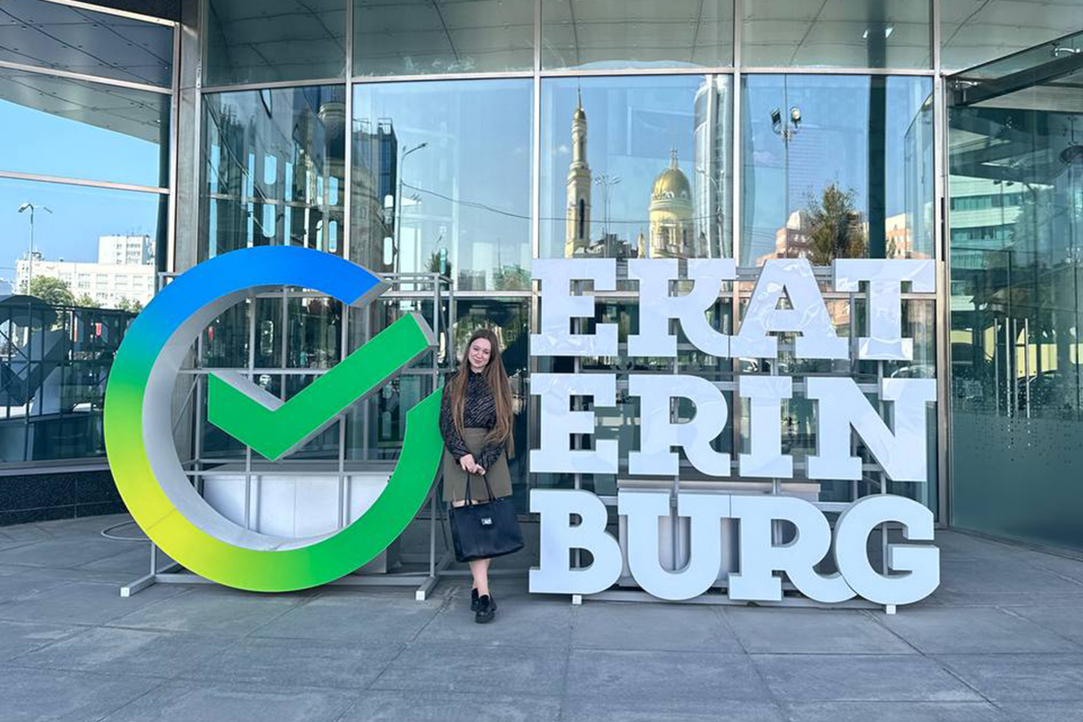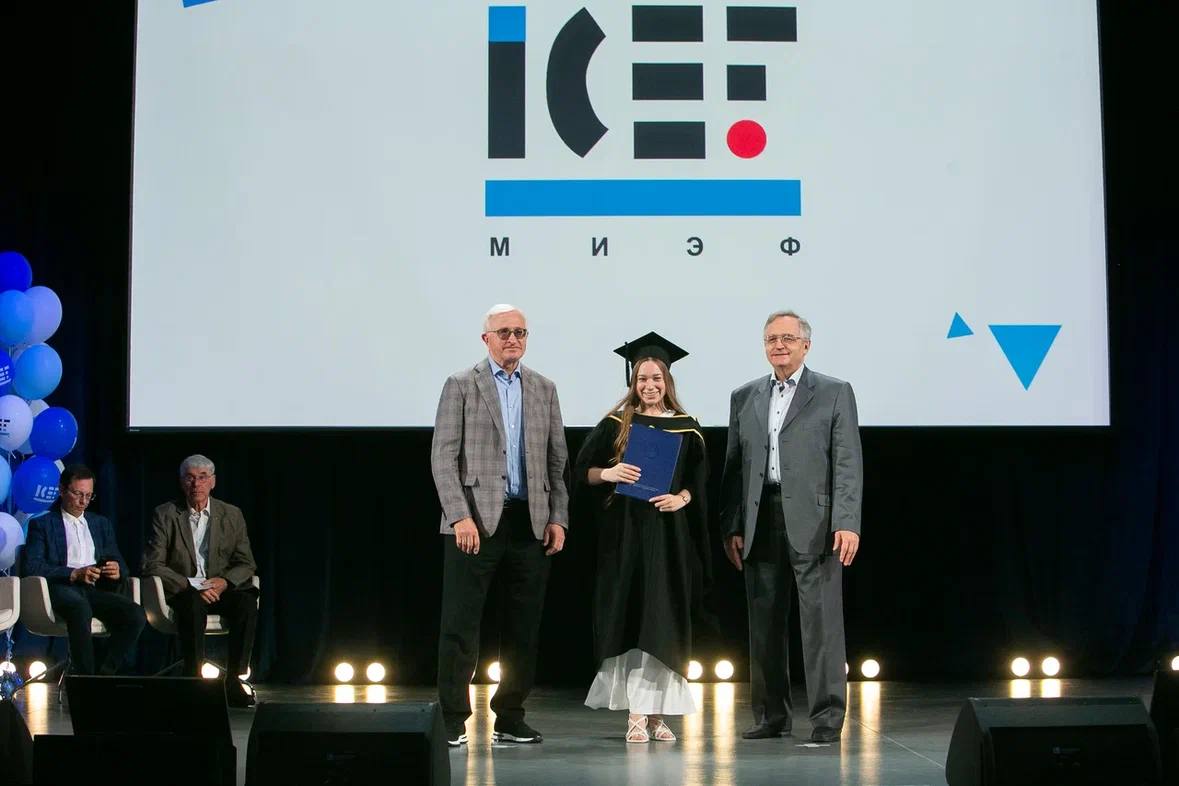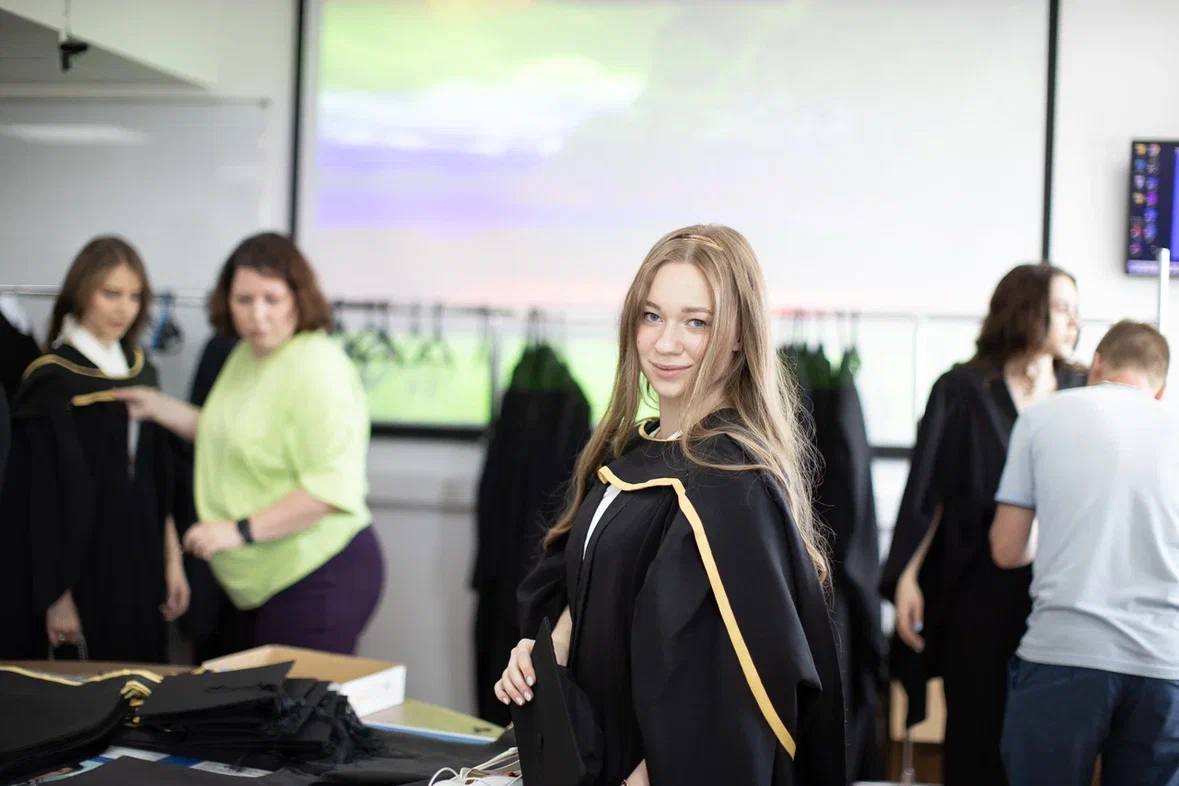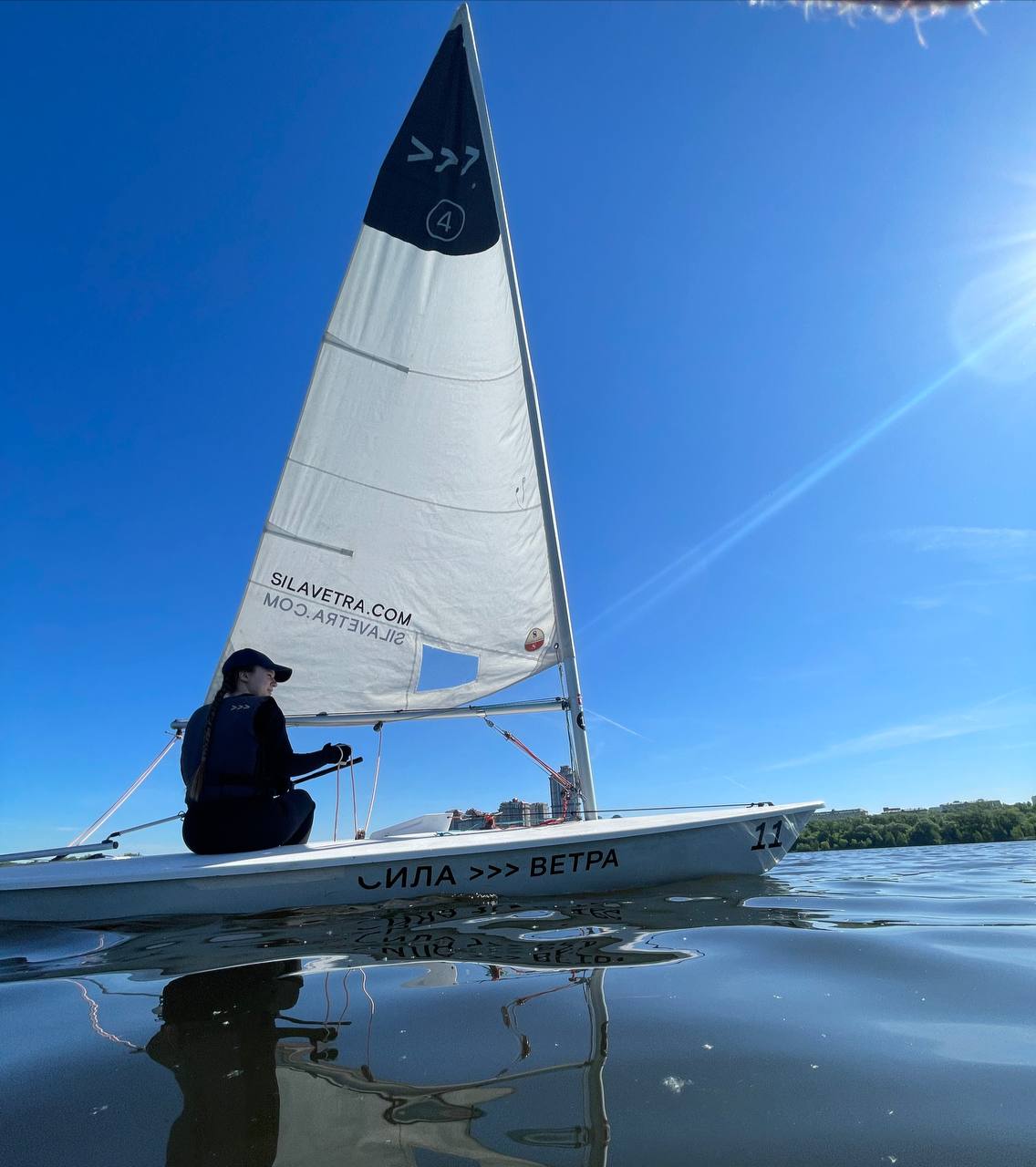Vera Potekhina, ICEF Graduate 2024, Sberbank Employee: “I Owe Getting My Job To ICEF”

Vera, you spent your school years in Krasnoyarsk but chose to do your degree here. Why?
As a high school student I thought banking would be the right career for me, so economics and finance seemed an obvious choice of major. I viewed HSE as the best university in this country, with ICEF fully accommodating my two pursuits: learning economics and keeping up my English skills. It’s safe to say I made the right choice.
You seem to be the type who knows how to set goals and progress towards them. I know you started to seek internship as soon as you settled into ICEF. Not only did you land one, you got a job offer. What helped you succeed?
My first six months in Moscow were mostly about adjusting myself. It wasn’t until the second semester that I started to seek internships.
Of great help in that process was ICEF Career Services. I completed all the steps recommended by its manager Victoria Pralich for successful job search.
What did my search involve? Attending conferences and meetups. Beyond that, I subscribed to multiple company newsletters to stay updated on the vacancies. There were some I responded to. Also, ICEF offers an array of career events, some weeks I attended as many as five. But what proved to be most useful was the series of interview workshops that involved resume writing and presentation skills training. That helped me improve my job search a lot. I was able to develop a compelling resume; as for the motivation letter, they ask it almost never.
Students seeking jobs can expect to get from ICEF just the right selection of career events and vacancies on offer. The people that we get to meet at these events aren’t only HR specialists, who often see their task as mere presentation of internships, we get to meet and talk to the professionals truly interested in their work. My path to the internship, and eventually job, was exactly via one of the meetups here at ICEF. It was hosted by my current colleague and he talked about global markets.
So, in a nutshell, career events had played the most important role in my job search. The more you attend, the better.

You did you first internship after completing your first year of study and it was with the IT company CROC. What were some of the biggest challenges you faced when starting out a line of work you never did before, and how can students overcome them?
Many interns seem to worry more about whether they have enough financial and economic skills. But, in fact, the most challenging part for many, if not everyone, is communication.
In the classroom, we only communicate with teachers and other students. When entering the workplace, the first thing to be done is to make sure you know how to use communication channels right, I mean e-mailing, appointment scheduling, etc. Now as an intern manager myself, the first thing I brief newcomers on is our internal communication. It does take time to get the hang of using it.
CROC was where I learned many of the soft skills important in my job. Because I was in sales I was able to communicate with many different people. In my line of work, which is management, communication is key. CROC then offered me a permanent position, but I had to say ‘no’ because by the end of my internship I’d become pretty sure IT wasn’t a career to fit me best.
What do you think is the best time for students to do internships and start job search?
Year 2 and 3. You will need some work experience to put on your resume before you reach your fourth year, it will indicate to the employers that you at least can ease into the team much faster than zero-experience candidates.

Vera, how did you get your current job?
Through my second internship. I did it at Sberbank to re-join as full-time employee last spring. The job required both soft and hard skills from the very start. My ambition was to land a job at a top company, no matter whether in banking or IT or e-commerce. I had responded to quite a few vacancies and done multiple interviews before I got my current job. Got rejected by Raiffeisenbank in the final stage, shortly before receiving the offer from Sberbank. Good for me. I took that rejection as a sign that something better might be coming my way, I just had to try a little harder. I was right.
Things worked out for you exactly the way you planned in high school! You’re in banking. What are your responsibilities and what part of them do you particularly like?
The official designation of my position is Junior Investment Sales Manager. My role is to promote the sale of Global Markets investment products at regional level. We are a small team, each member responsible for their own line of products. My duties involve presenting a product to teams in our regional offices for them to start selling it locally. Also, as a product expert, I work in close cooperation with developers and marketing team. The goal is to make product purchases easy for the client and selling convenient for the bank. The marketing people, I give them product specification and the info to post on website, while my input to the development process relates mostly to task description. Next is the implementation part: I help to introduce new products into our sales system.
I really enjoy teamwork and being part of the interaction with colleagues in Moscow and other places in Russia. I have been to our offices in Krasnoyarsk, Saint-Petersburg, Yekaterinburg, Samara, Rostov-on-Don, Krasnodar, Nizhny Novgorod. It was a great experience.
I also go to trade conferences. One I attended was the Ural Conference of the Russian Stock Markets in Yekaterinburg.
Which of the courses that you learned in ICEF proved to be most useful in your workplace?
Asset Pricing and Financial Markets, Banking Management and Risk Analysis, Corporate Finance. These, and Money Circulation, have proven to be crucial to the understanding of the industry I’m in. The knowledge of macroeconomics and investment portfolio management is what I rely most on.

What is your most valuable takeaway from your experience in ICEF?
First, goals require effective time management. This I learned from my experience of juggling studies with work, trips and relocations.
Second, I learned some important life lessons while in ICEF. And I am especially grateful to professors Olesya Kondrakhina, Yaroslav Lyulko and Marina Perminova for their wisdom and instilling in me some vital life skills alongside subject knowledge.
What is more, ICEF is a great place to expand horizons. With a diversity of optional training activities, student organizations and clubs, there is an opportunity for everyone to try on roles and discover more.
Are you already planning your next move as your career begins to unfold?
My plan is to stay in finance and to possibly deal more with products that are seen as non-classical in market segments at the intersection of finance and management.
Or, I might want to deal more with brokerage services or join an investment fund. But that’s finance, too. It suits me fine. If I ever decide to start my own business, my experience of working for a large corporation will certainly be useful.

Does the employee of a large corporation still have time for herself?
She does. A well-rested employee is a well-performing employee. I do have the time to meet with friends and pursue my passions. After all, what’s the point of making money if you don’t spend it on what you like?
I love exercising. Trying to make gym workouts part of my life. One of the sports I like best is yachting, it has an invigorating effect on body and mind.
Now that I’ve graduated I have more time for myself. I spend it doing classes I never took before – music, eloquence, psychology, and media.